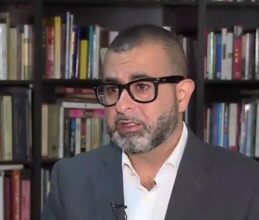Diets that cause hair loss… Learn about them
Al-Khamisa News Network - Gaza

Some random diets significantly affect hair health, causing it to lose its vitality and even fall out.
In the following lines, let us learn about the effect of these diets on hair health.
Following a low-calorie diet may seem beneficial to your health, especially if you are overweight, but exposing your body to a significant drop in energy sources can lead to unexpected reactions.
Basal metabolism is defined as the minimum daily energy expenditure required for the body to function properly.
Some low-calorie diets can slow down your basal metabolism, especially if followed for a long period. Their primary impact on hair health comes from the nutritional deficiencies they cause.
In practical terms, studies indicate that hair follicles are often the first to be affected by the nutritional deficiencies associated with weight loss diets.
Rapid weight loss often leads to a deficiency in sulfur, which is found primarily in protein-rich foods. Sulfur is a key component of keratin, the protein that makes up hair. This can lead to sudden, widespread hair loss, which can affect the health of the entire scalp.

essential nutritional components
Following a balanced diet is essential when following a weight-loss diet. Most importantly, avoid excluding certain foods and nutrients to avoid excessive hair loss. Among the essential elements for healthy hair are proteins and the sulfur amino acids they contain, zinc, iron, and foods rich in B vitamins. Zinc contributes to scalp care and cell renewal, allowing iron to transport oxygen to hair follicles. To reduce its deficiency, it is recommended to eat lean red meat and shellfish, in addition to whole grains, seeds (pumpkin, sunflower, and sesame), and green leafy vegetables.
The importance of medical advice
If you experience abnormal amounts of hair loss, there's no immediate cause for concern, as this type of hair loss is usually temporary. However, doctors in this field warn against severe hair loss and recommend consulting a dermatologist or general practitioner before discontinuing any diet. In this case, the doctor can determine whether the hair loss is related to nutritional deficiencies, stress, or an underlying alopecia that requires specific treatment. Once the condition is diagnosed, it's easier to adjust your diet or prescribe appropriate nutritional supplements. In most cases, rebalancing your diet and consuming adequate amounts of proteins, minerals, and vitamins can stimulate hair growth and reduce hair loss.

Maintaining healthy hair
A balanced, gradual approach to weight loss is much more effective than a zero-carb or low-calorie diet. Less restrictive approaches tend to produce less harmful and better long-term results.
Experts in this field note that hair is a reflection of our overall health: stress, sleep, hydration, physical activity, and a healthy lifestyle all contribute to maintaining healthy hair. They recommend that every diet be accompanied by drinking at least one and a half liters of water daily, getting enough sleep, and exercising regularly, if possible, to maintain overall health and hair health in particular.





